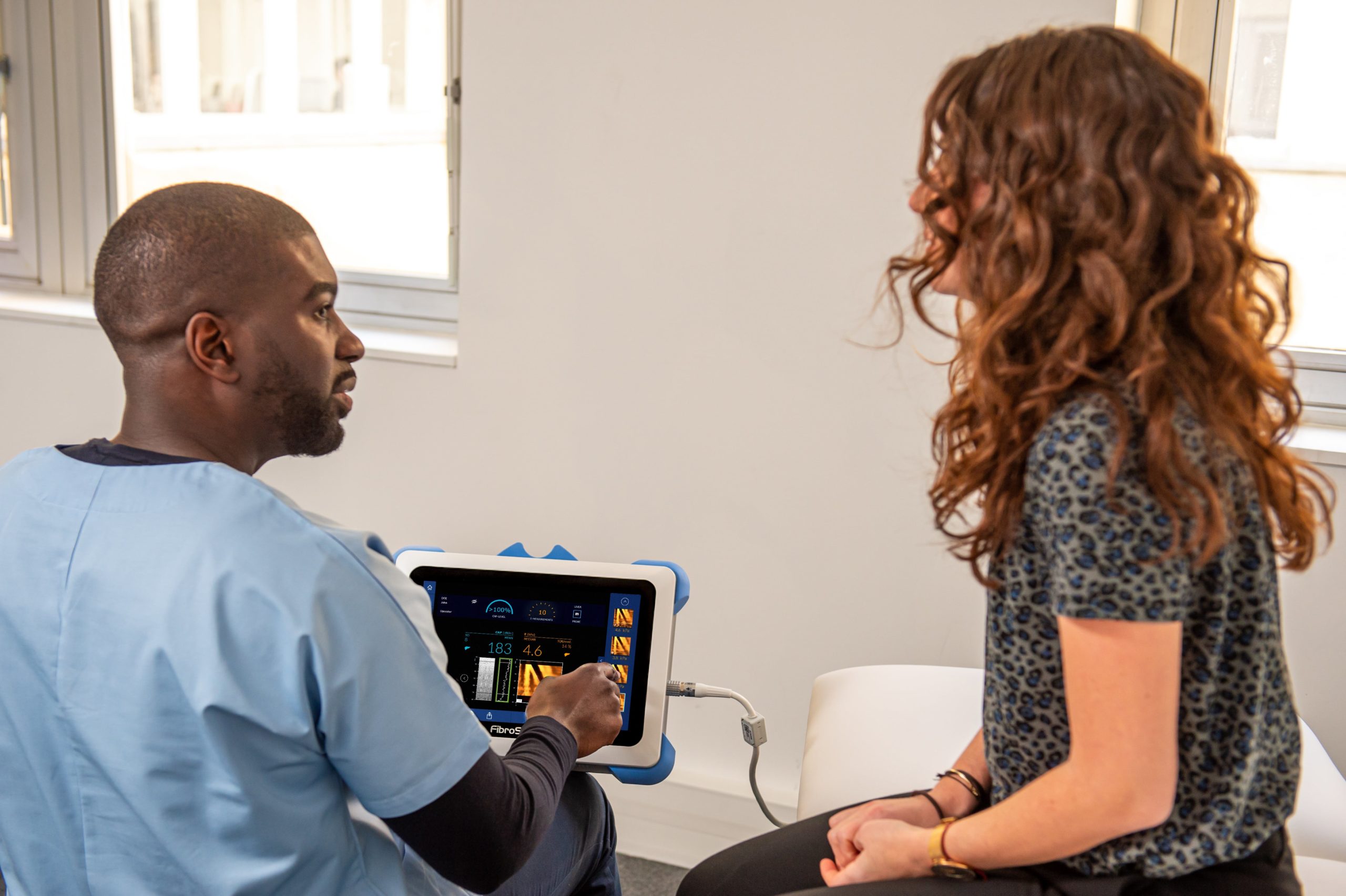“An estimated 30 percent of individuals in the U.S. are affected by NAFLD, with most patients undiagnosed,” says Douglas Dieterich, MD, Director of the Institute for Liver Medicine, Mount Sinai Health System. “Given this high prevalence of disease, cost effective risk stratification strategies need to be proven and adopted to target more effective assessments and interventions for those patients at greater risk of advancing liver disease.”
Dr. Dieterich points to FibroScan as a rapid, noninvasive quantification tool at the point of care that may enable efficient and cost-effective early screening and subsequent disease identification.
“This is essential to improve NAFLD disease management and reduce the disease impact on overall patient health and the healthcare system as a whole,” he continues.
In collaboration with Echosens, NASHNET will collect and analyze data on 6,500 patients over a one-year period. This real-world evidence study is designed to identify cost effective patient flows to screen, diagnose, and manage patients with NAFLD and NASH. To accomplish this goal, the NASHNET steering committee is recommending that FibroScan devices be placed within their primary care and/or diabetic clinics.
Principal NASHNET pilot study investigators include:
- Mount Sinai Health System: Amon Asgharpour, M.D., Assistant Professor, Icahn School of Medicine at Mount Sinai; Amreen Dinani, M.D., Assistant Professor, Icahn School of Medicine at Mount Sinai; Douglas Dieterich, M.D., Director of the Institute for Liver Medicine, Mount Sinai Health System
- Baylor College of Medicine: Norman Sussman, M.D., Associate Professor of Surgery, Baylor College of Medicine
- Ochsner Medical Center: Dr. George Therapondos, Head of Hepatology, Ochsner MultiOrgan Transplant Institute, Dr. Nigel Girgrah, Chief Wellness Officer, Ochsner Health System, Medical Director, Multi-Organ Transplant Institute, Ochsner Medical Center
- Cedars-Sinai Medical Center: Mazen Noureddin, M.D., Director, Cedars-Sinai Fatty Liver Program, Cedars Sinai Medical Center
- Northwestern Feinberg School of Medicine:Mary Rinella, M.D., Professor of Medicine, Director, Northwestern Fatty Liver Program, Northwestern University Feinberg School of Medicine
- New York University Langone: Viviana Figueroa Diaz, M.D., Assistant Professor, New York Langone
- Methodist Health System: Parvez S Mantry M.D., AGAF, FAASLD, CPE, Executive Medical Director, Methodist Health System Clinical Research Institute, Medical Director, Hepatobiliary Tumor Program, The Liver Institute at Methodist Dallas Medical Center
Dieterich concludes, “Our aim is to assess cost effective screening, diagnosis and management approaches that leverage the unique ability of FibroScan to rapidly quantify stiffness and estimate liver fat, and to make the technology available where patients receive their care. The study will evaluate care models that utilize FibroScan in conjunction with routine lab tests, lipidomic and metabolic profiles, magnetic resonance elastography (MRE), exploratory biomarkers, and morphometric analysis. The objective is to improve identification of patients with progressive NAFLD and reserve more costly assessments to those patients at greater risk for mortality and morbidity associated with the disease.”
About The Kinetix Group
The Kinetix Group is a boutique care delivery consultancy that combines deep health care experience, diverse clinical expertise, and an expansive network of healthcare leaders to provide guidance and execution of care delivery strategies. Kinetix works with life science, health system and payer partners across the healthcare ecosystem to develop and implement real world solutions that improve care, drive better population health, and deliver sustainable value to those they serve.
About NASHNET
NASHNET, a Kinetix Group-led network founded in 2017, aims to improve non-alcoholic fatty liver disease (NAFLD) care delivery by promoting collaboration, innovation, best practice sharing, and the development of real-world evidence across leading delivery systems. NASHNET aims to create standardization and systematization of care models that address major NAFLD/NASH gaps including patient identification and stratification, referrals and intervention methodologies, care coordination processes, and patient and provider education from primary care through hepatology.
